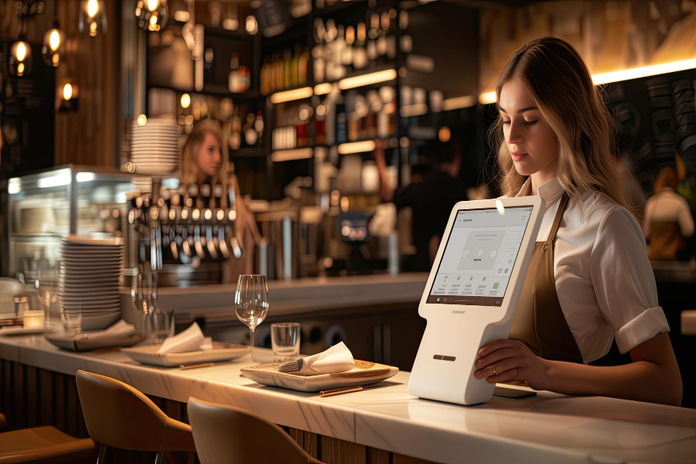This post was originally published on this site

In the ever-evolving world of restaurant technology, Ben Leventhal, a pioneer in foodie culture and tech-driven dining experiences, is leading the charge with his latest venture: Blackbird Labs. Blackbird is revolutionizing restaurant loyalty programs by integrating cryptocurrency into the dining experience, offering a fresh approach to how restaurants reward their most loyal customers. As the app approaches its one-year mark, it’s clear that this innovative platform is making waves in the hospitality industry.
The Evolution of Restaurant Loyalty Programs
Leventhal’s journey in the food and tech industry has been marked by significant milestones. After co-founding Eater and Resy, platforms that changed how people discover and reserve restaurants, he is now focused on transforming restaurant loyalty programs with Blackbird Labs. The app uses cryptocurrency, specifically $FLY tokens, to reward diners who frequent participating restaurants.
Blackbird’s approach is simple yet innovative: diners earn $FLY tokens every time they visit a restaurant that partners with the app. These tokens are more than just points—they represent a new way to engage with restaurants and receive perks such as complimentary dishes, welcome drinks, and access to exclusive reservations. This system not only incentivizes repeat visits but also keeps customers within the restaurant ecosystem, potentially boosting long-term loyalty.
The Power of Blockchain in Loyalty Programs
At the heart of Blackbird’s restaurant loyalty program is blockchain technology. Transactions involving $FLY tokens are recorded on Base, a Layer 2 blockchain developed by Coinbase (NASDAQ:COIN), designed to reduce transaction costs associated with the Ethereum blockchain. While most diners may not be concerned with the intricacies of blockchain, the technology ensures that their rewards are securely tracked and redeemed.
The use of blockchain also allows restaurants to share customer data and create a universal currency that can be used across multiple venues. This means that diners can earn rewards at one restaurant and spend them at another, fostering a sense of community among participating establishments.
Real-World Impact: Blackbird in Action
One of the early adopters of Blackbird is Temple Bar, a historic venue in NoHo, Manhattan. The bar’s embrace of Blackbird’s technology is subtle yet impactful, with customers “checking in” upon arrival by scanning a device that tracks their visit and spending. This data helps the restaurant personalize the dining experience, offering perks such as the best table or a complimentary drink to high-value customers.
Despite its innovative approach, Blackbird’s adoption has faced challenges. Some restaurant staff are still unfamiliar with the app, and its presence at certain venues may go unnoticed by casual diners. However, among those who use the app, the feedback has been positive. Vance Spencer, co-founder of Framework Ventures, shared that he hasn’t paid for coffee in months thanks to his accumulated $FLY tokens.
The Road to Adoption
For Blackbird to succeed, it must reach a critical mass of both restaurants and diners. As of July, the app had been adopted by 0.6% of New York City’s restaurants, with a 10-fold increase in usage over the past year. Leventhal is confident that once a certain threshold is reached, the app will gain significant traction, becoming a must-have for both diners and restaurants.
Leventhal is also realistic about the appeal of crypto in the dining world. He acknowledges that the blockchain aspect of Blackbird is unlikely to be a major selling point for most diners. Instead, the focus remains on the rewards and the enhanced dining experience that the app offers. “Crypto people are just obsessed with putting the word ‘crypto’ before things,” Leventhal remarked, emphasizing that the end-user experience is what truly matters.
Keeping Value Within the Industry
At its core, Blackbird is more than just a loyalty program—it’s a vision for creating a shared pool of capital that benefits the entire hospitality industry. By keeping $FLY tokens within the restaurant ecosystem, Blackbird encourages customers to spend their rewards on dining rather than on non-restaurant expenses. This approach aims to keep value within the industry, supporting the economic viability of participating restaurants.
Leventhal’s latest venture challenges the traditional notions of competition in the hospitality industry. By fostering a cooperative environment where restaurants support each other through shared loyalty programs, Blackbird is paving the way for a more sustainable and interconnected dining ecosystem.
Featured Image: Freepik

